Study 1. Properties of working fluids, coolants and structural materials for thermal engineering calculations
- Mark as New
- Bookmark
- Subscribe
- Mute
- Subscribe to RSS Feed
- Permalink
- Notify Moderator
Study 1. Properties of working fluids, coolants and structural materials for thermal engineering calculations
You will learn how to create a function that returns thermophysical properties of working fluids, heat transfer and energy materials using interpolation and smoothing. You will also learn what a cloud function for the thermal calculations is.
Mathcad 15 and Mathcad Prime 3 sheets of the study in attach.
- Labels:
-
Statistics_Analysis
- Tags:
- group discussion
- Mark as New
- Bookmark
- Subscribe
- Mute
- Subscribe to RSS Feed
- Permalink
- Notify Moderator
Other way to use in Mathcad 15 one function of dry air density (one figure for 2-d edition of the book).
See please a picture and the sheet in attach.
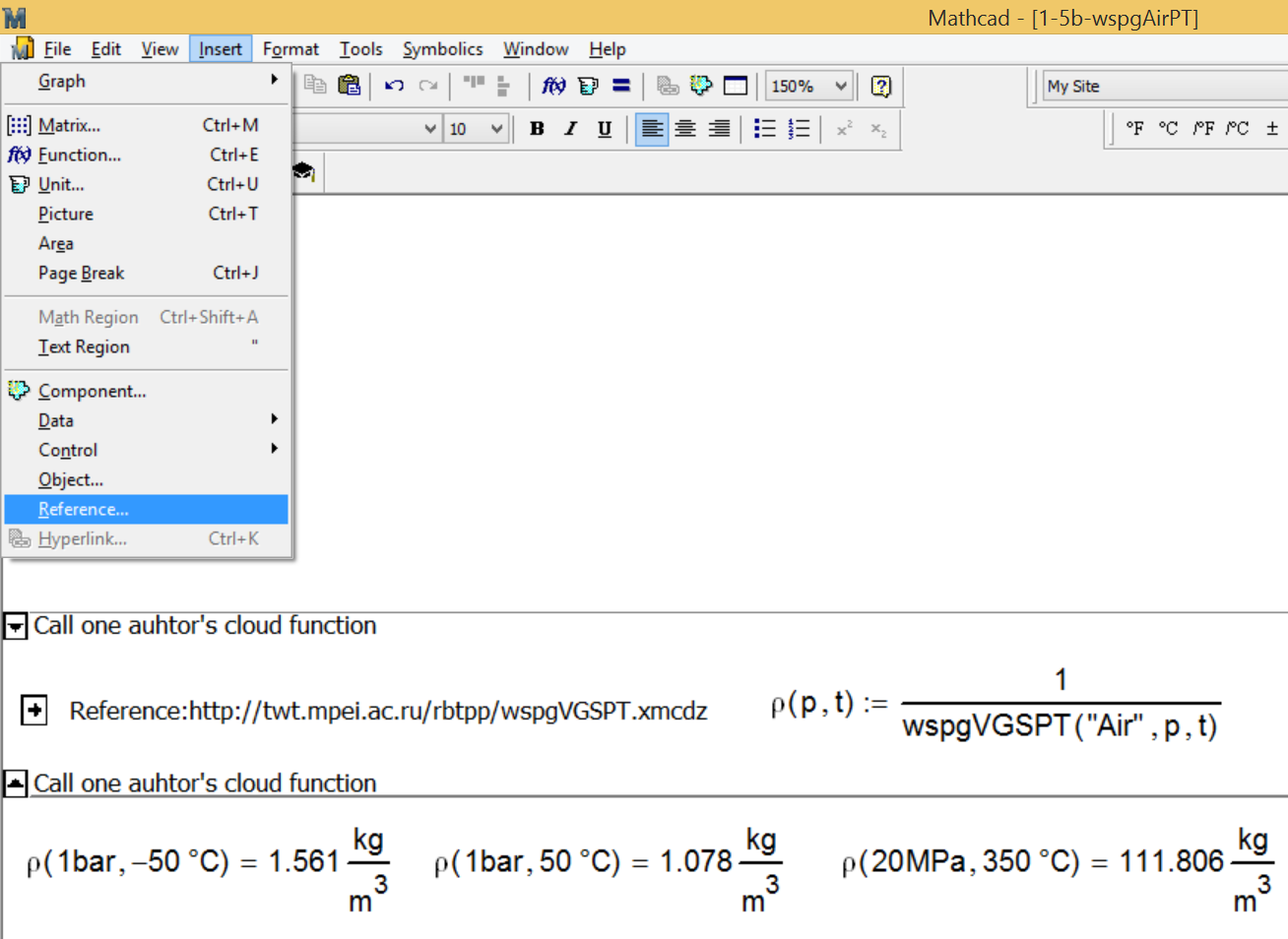
- Mark as New
- Bookmark
- Subscribe
- Mute
- Subscribe to RSS Feed
- Permalink
- Notify Moderator
Other way to use in Mathcad Prime 3 one function of dry air density (one figure for 2-d edition of the book).
See please a picture and the sheet in attach.
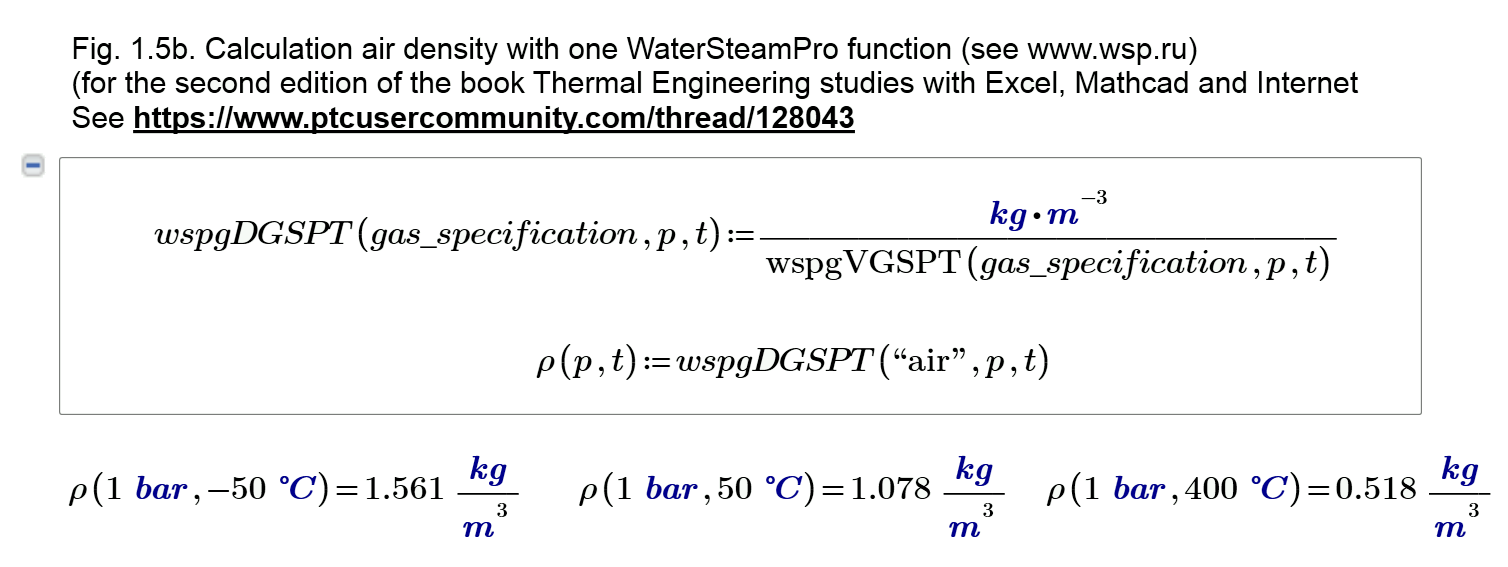
- Mark as New
- Bookmark
- Subscribe
- Mute
- Subscribe to RSS Feed
- Permalink
- Notify Moderator
Some pictures from the chapter:
Table 1.1 Pressure, density and temperature of any substance
Figure 1.1 Spline-interpolation of tabular data (Mathcad 15)
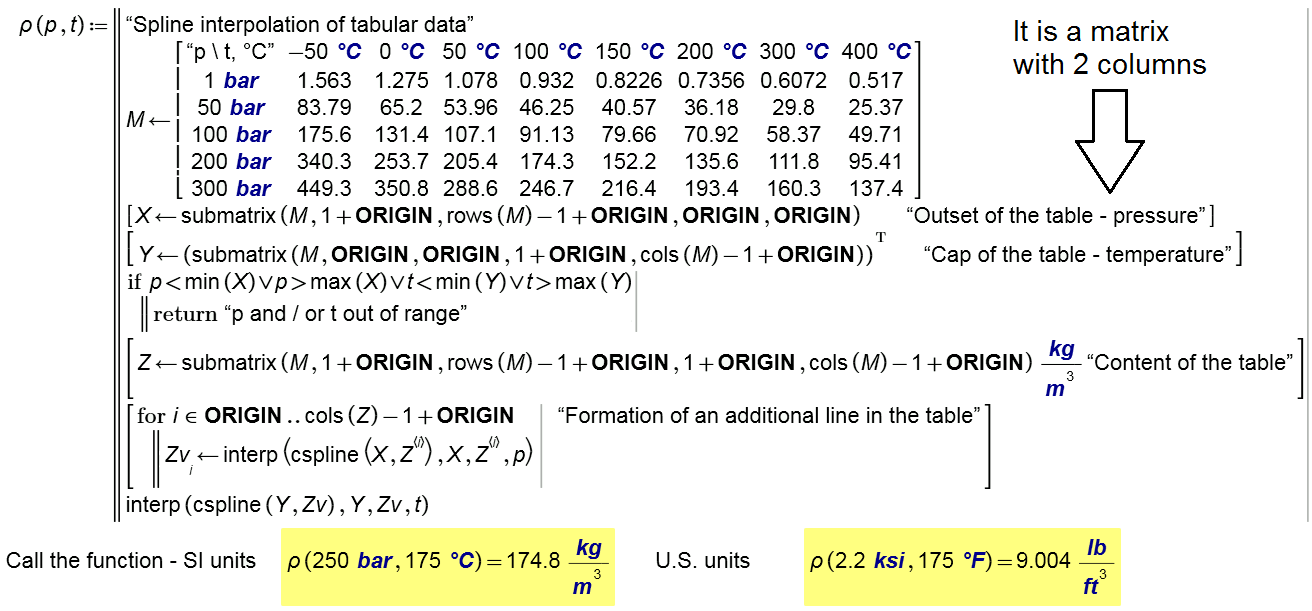
Fig. 1.2. Spline interpolation of tabular data (Mathcad Prime)
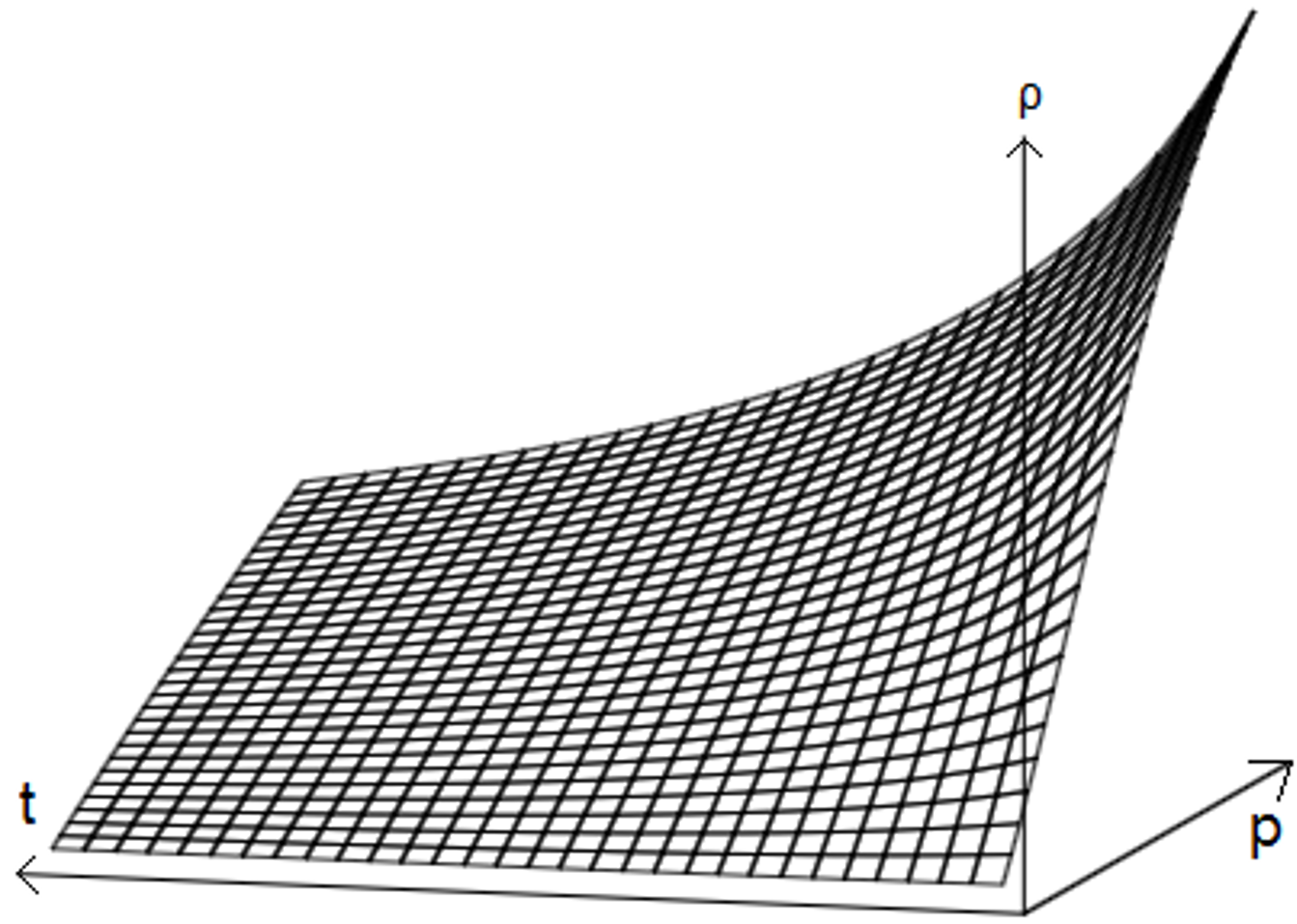
Fig. 1.3. Graphic display of a function (density) with two arguments – pressure and temperature
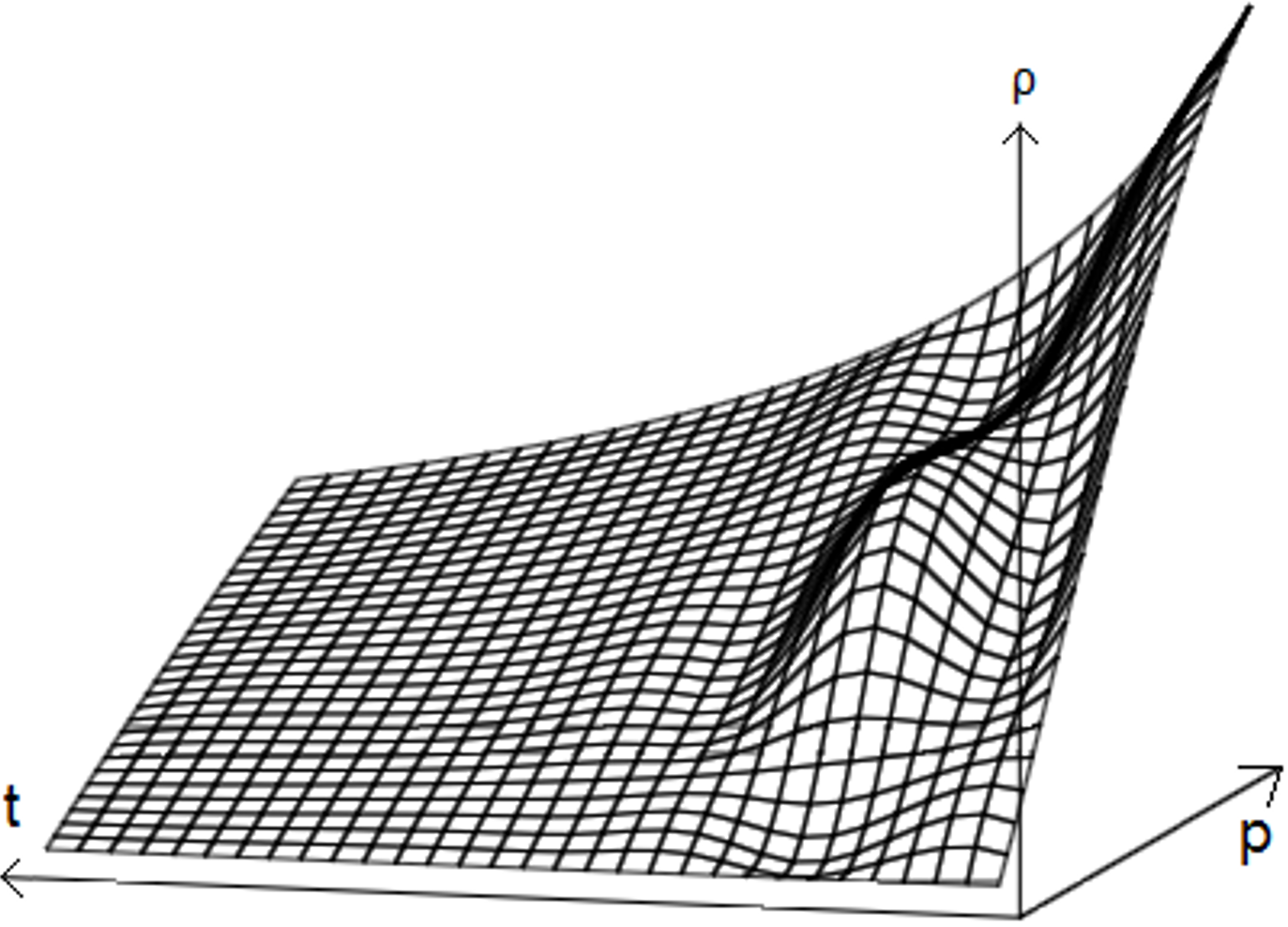
Fig. 1.4. Graphical display according to a possible error source data
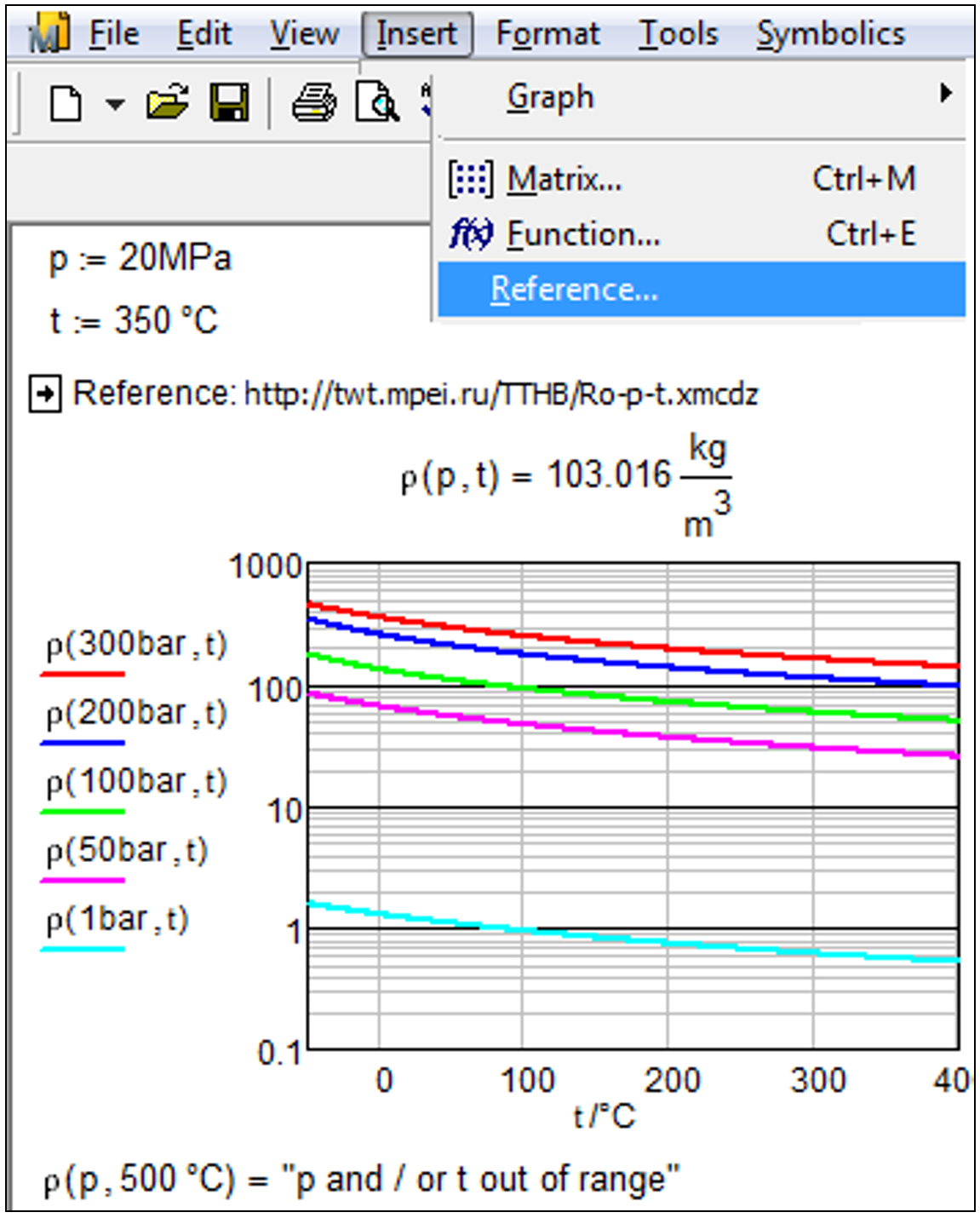
Fig. 1.5. Clickable link to external Mathcad-document
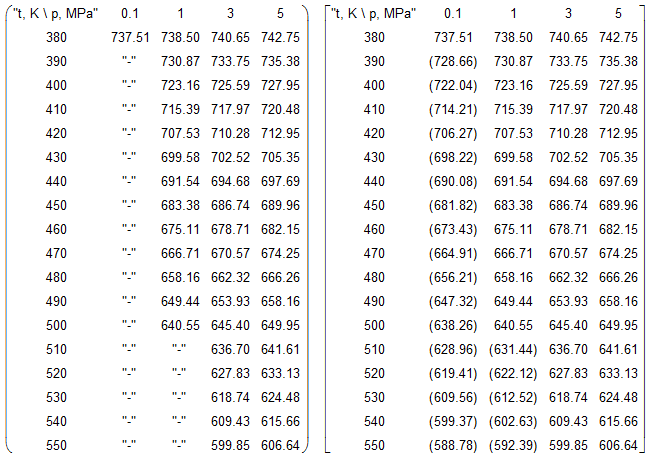
Fig. 1.6. Not completely filled (sparse) matrix with fictitious numbers
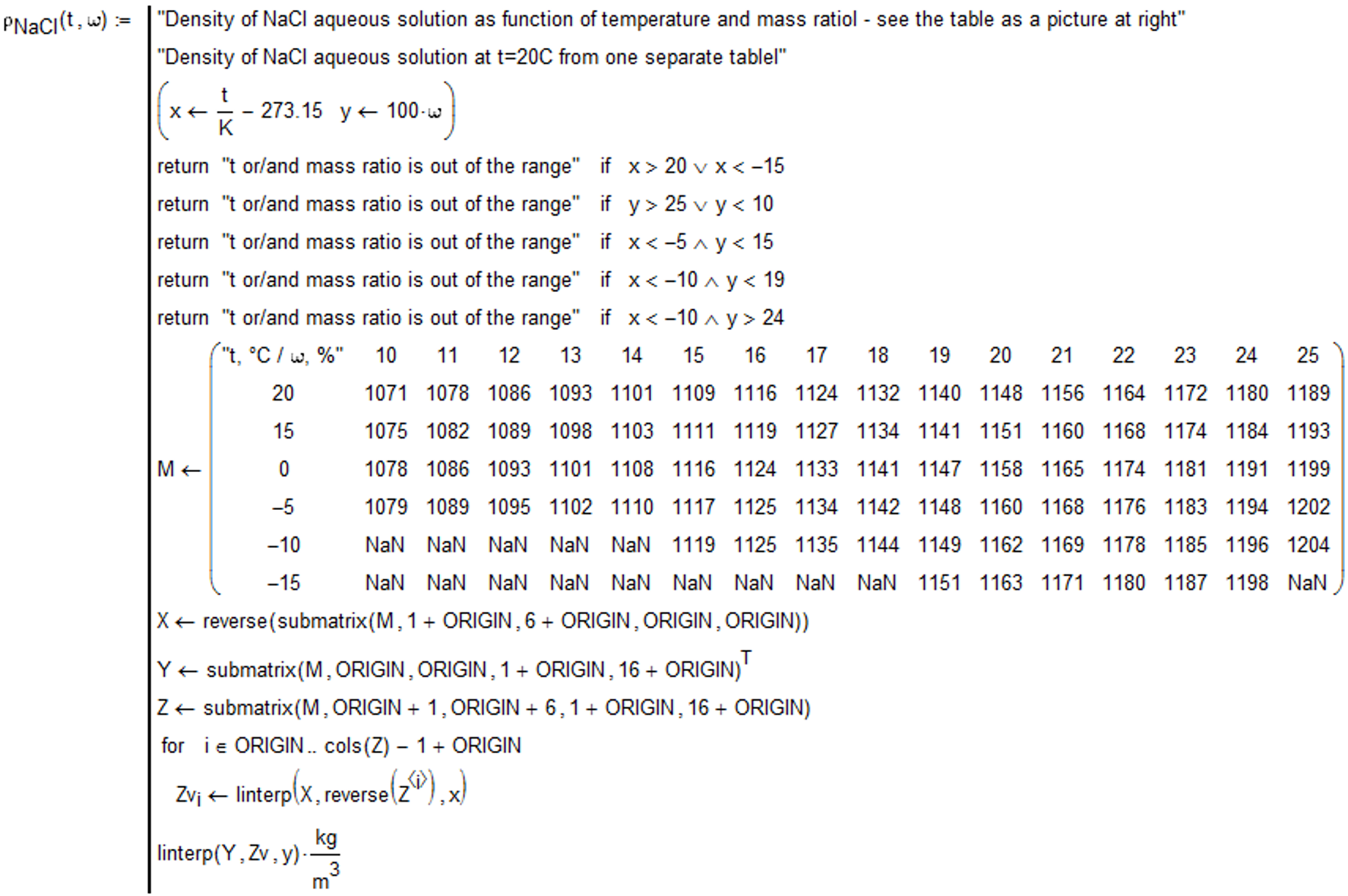
Fig. 1.7. Not completely filled matrix with NaN values and linear interpolation
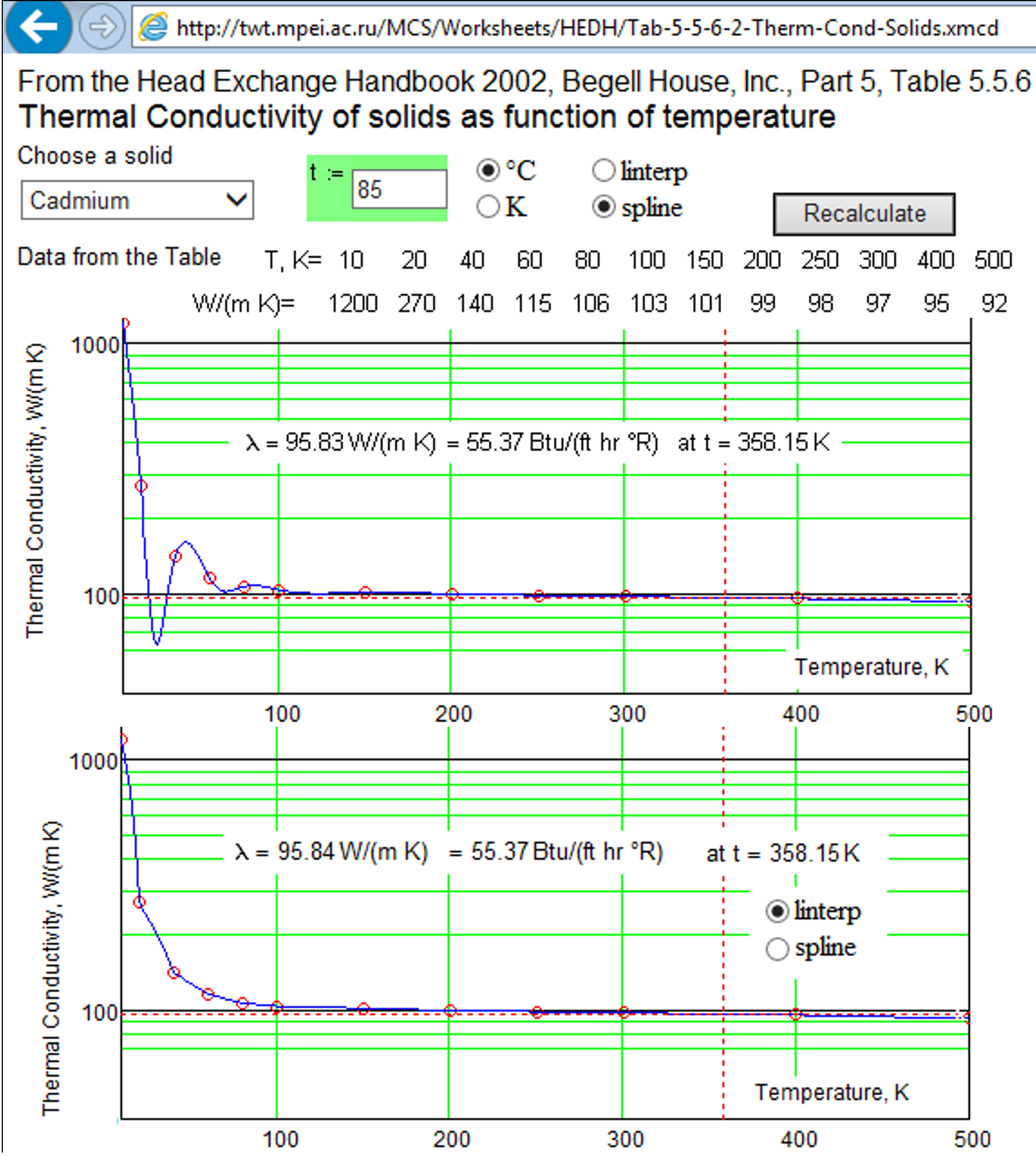
Fig. 1.8. Comparison of spline interpolation and linear interpolation: oscillation
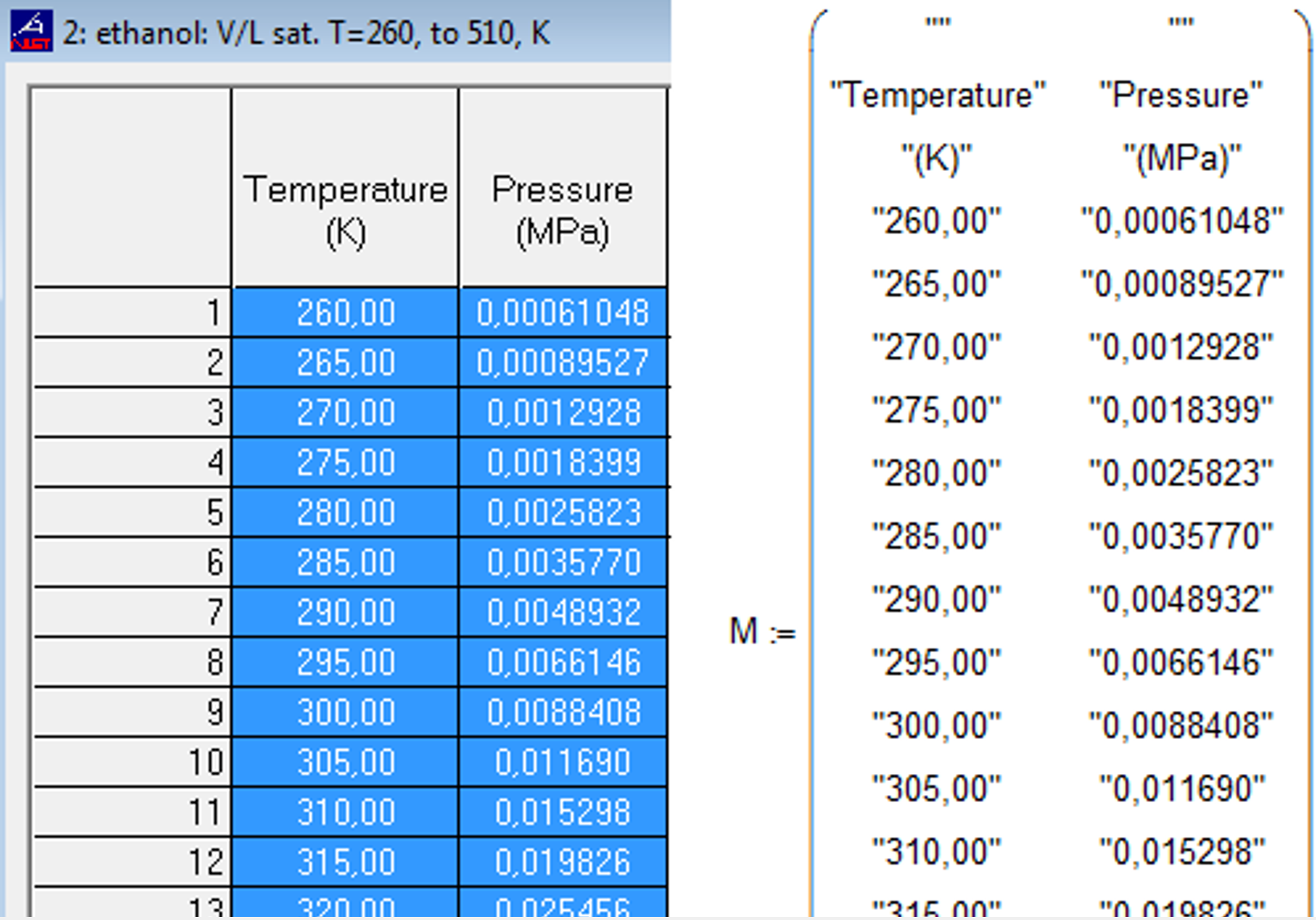
Fig. 1.9. Copying data from the program RefProp
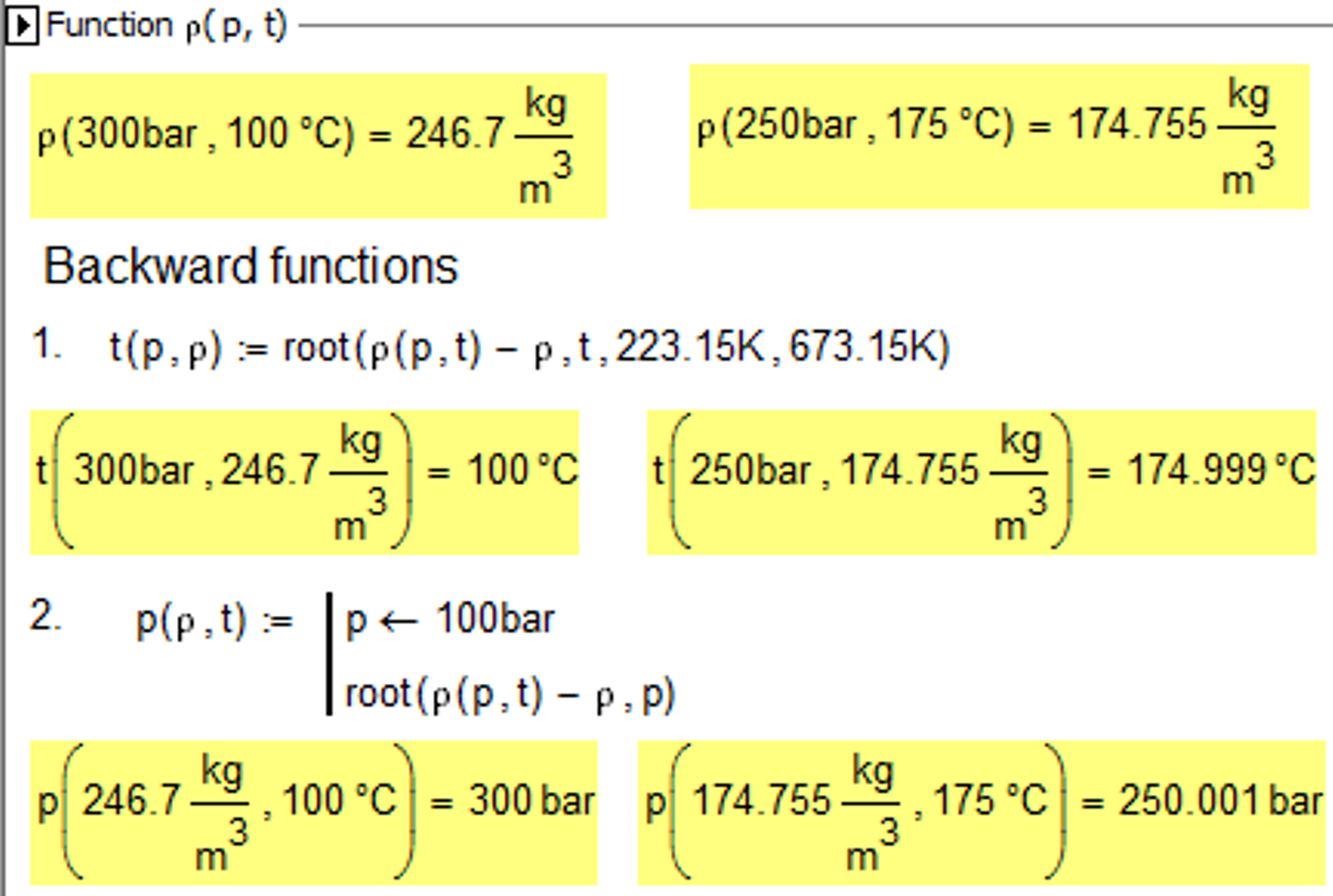
Fig. 1.10. Create backward functions
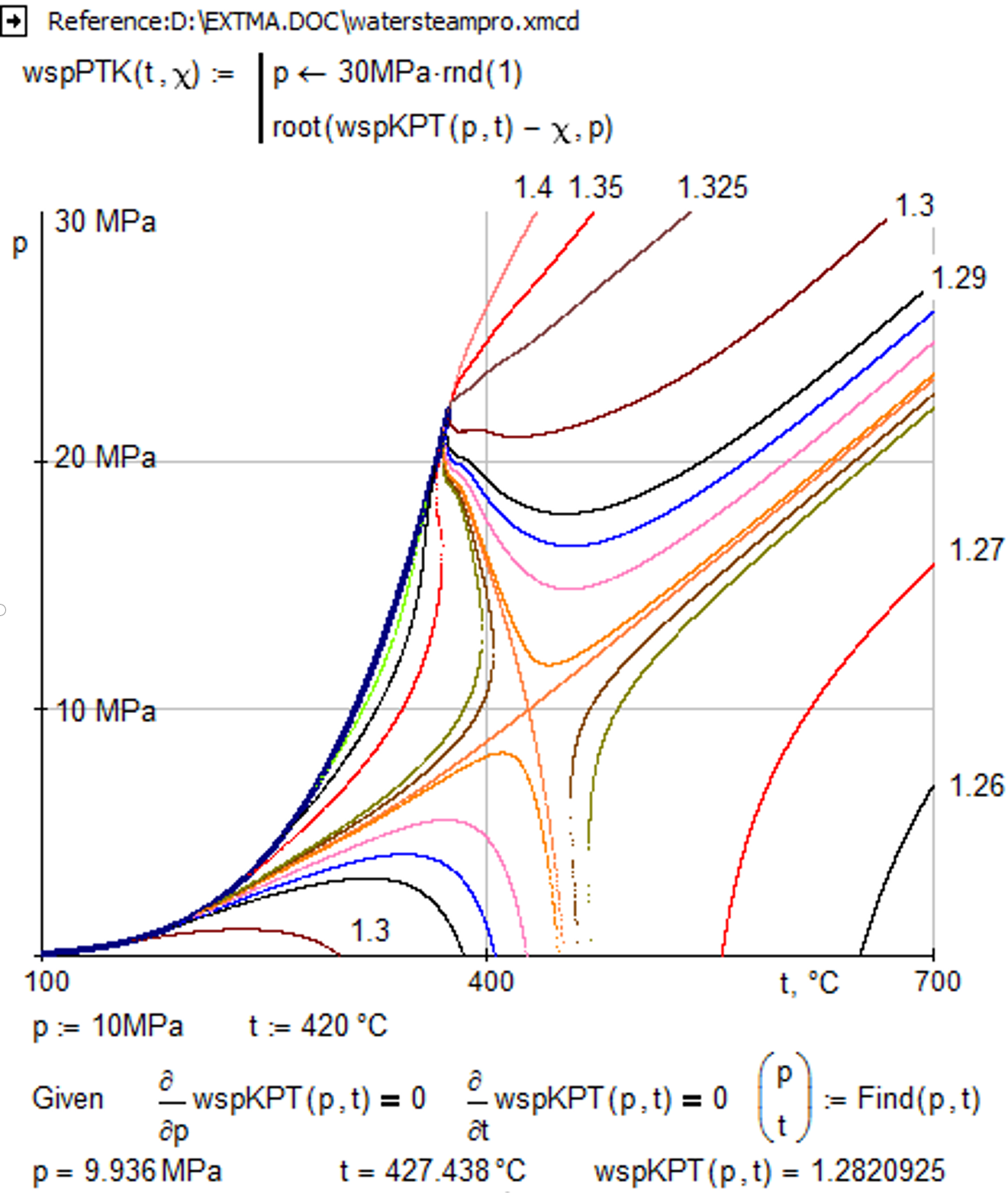
Fig. 1.11. Isentropic dependence
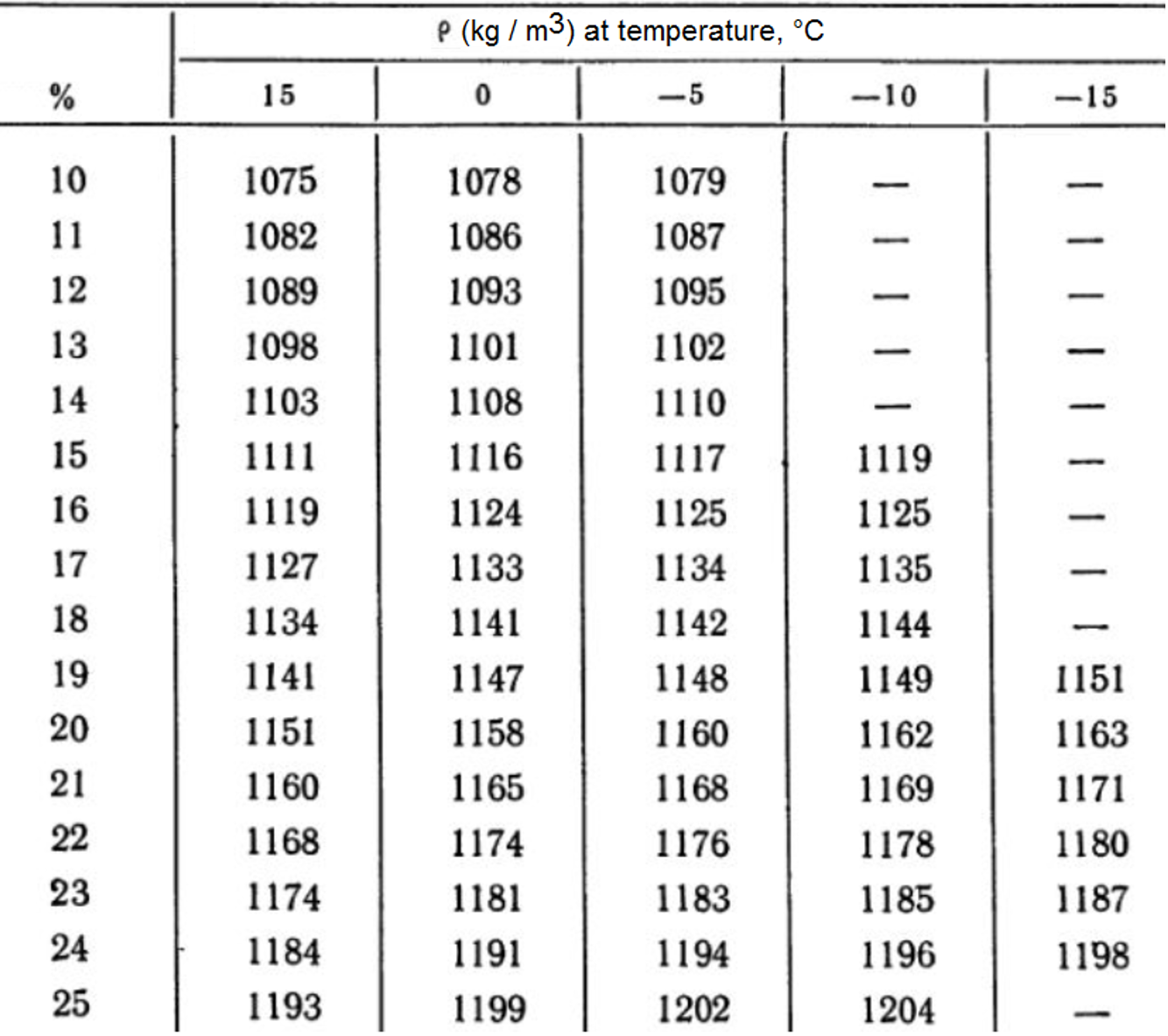
Fig. 1.12. Table from the Internet – densities of an aqueous NaCl solution
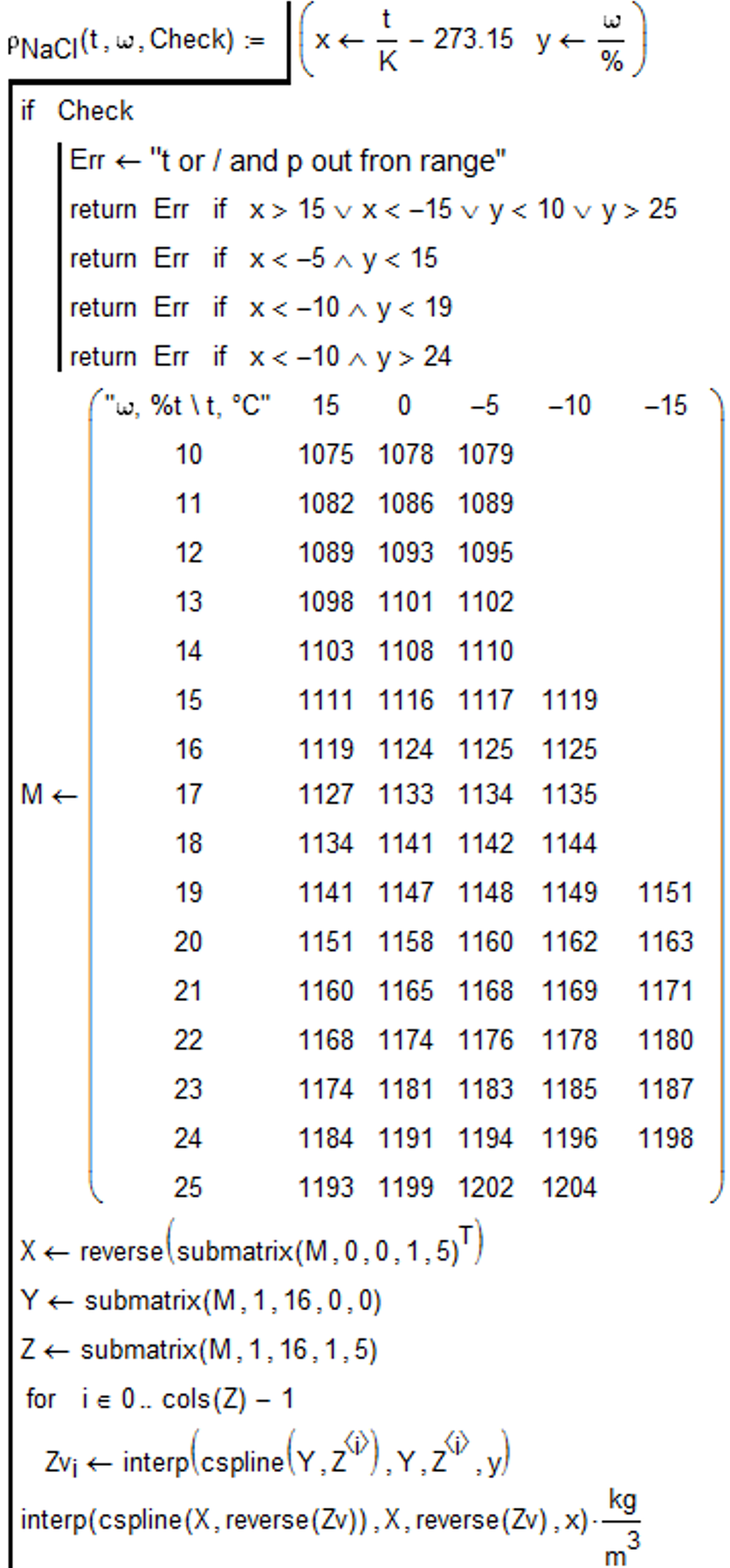
Fig. 1.13. Program spline interpolation
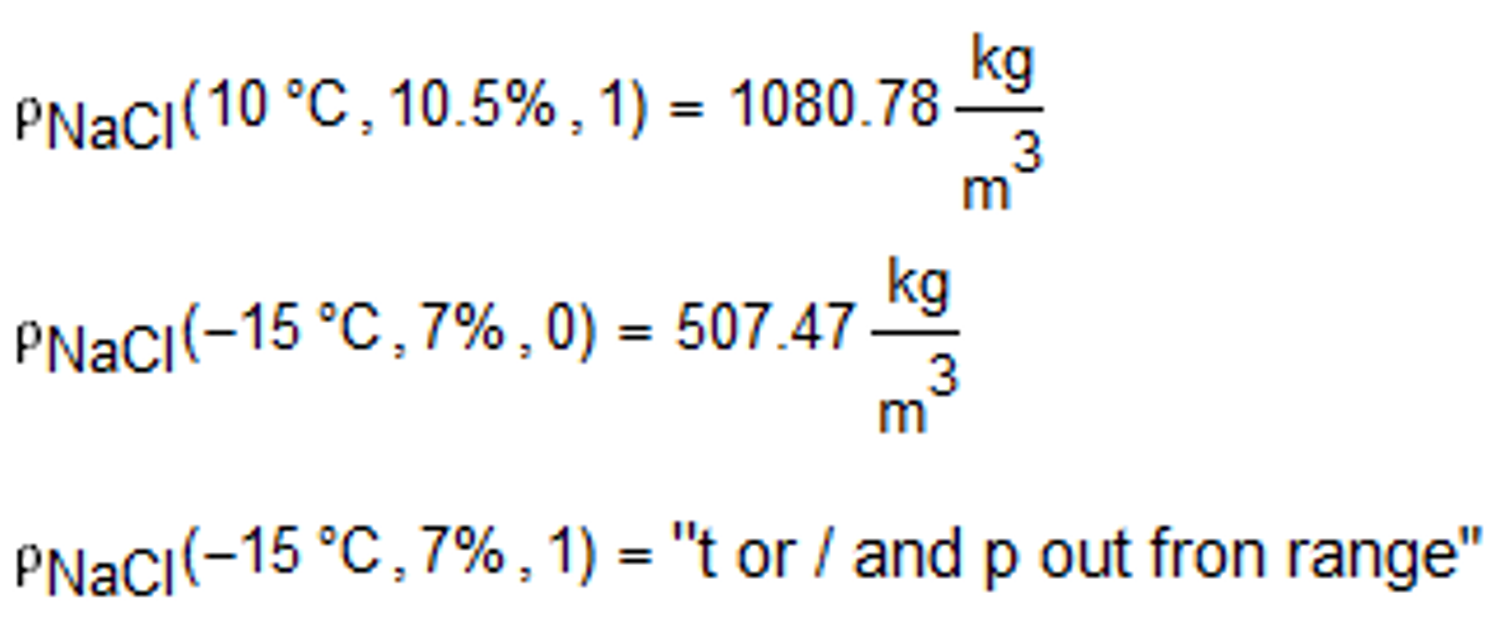
Fig. 1.14. Calling a function with and without scrutiny

Fig. 1.15. Creating an backward function
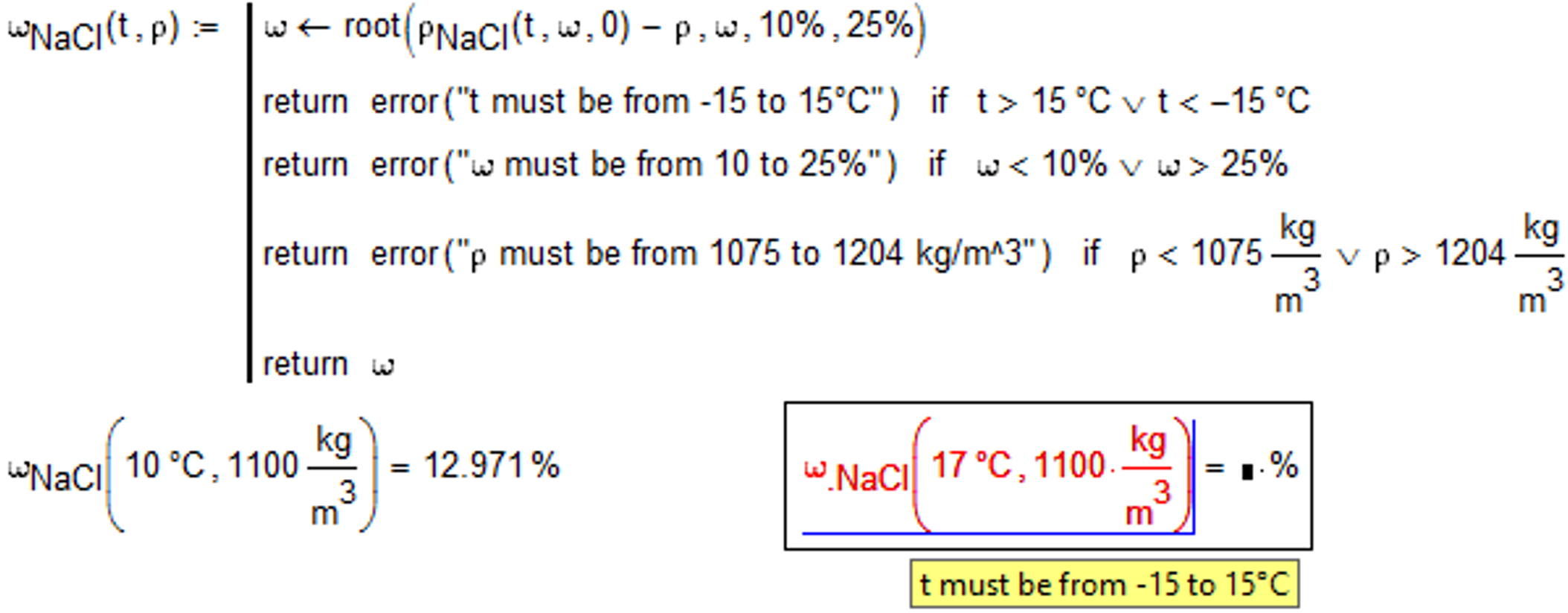
Fig. 1.16. Backward function to the control response
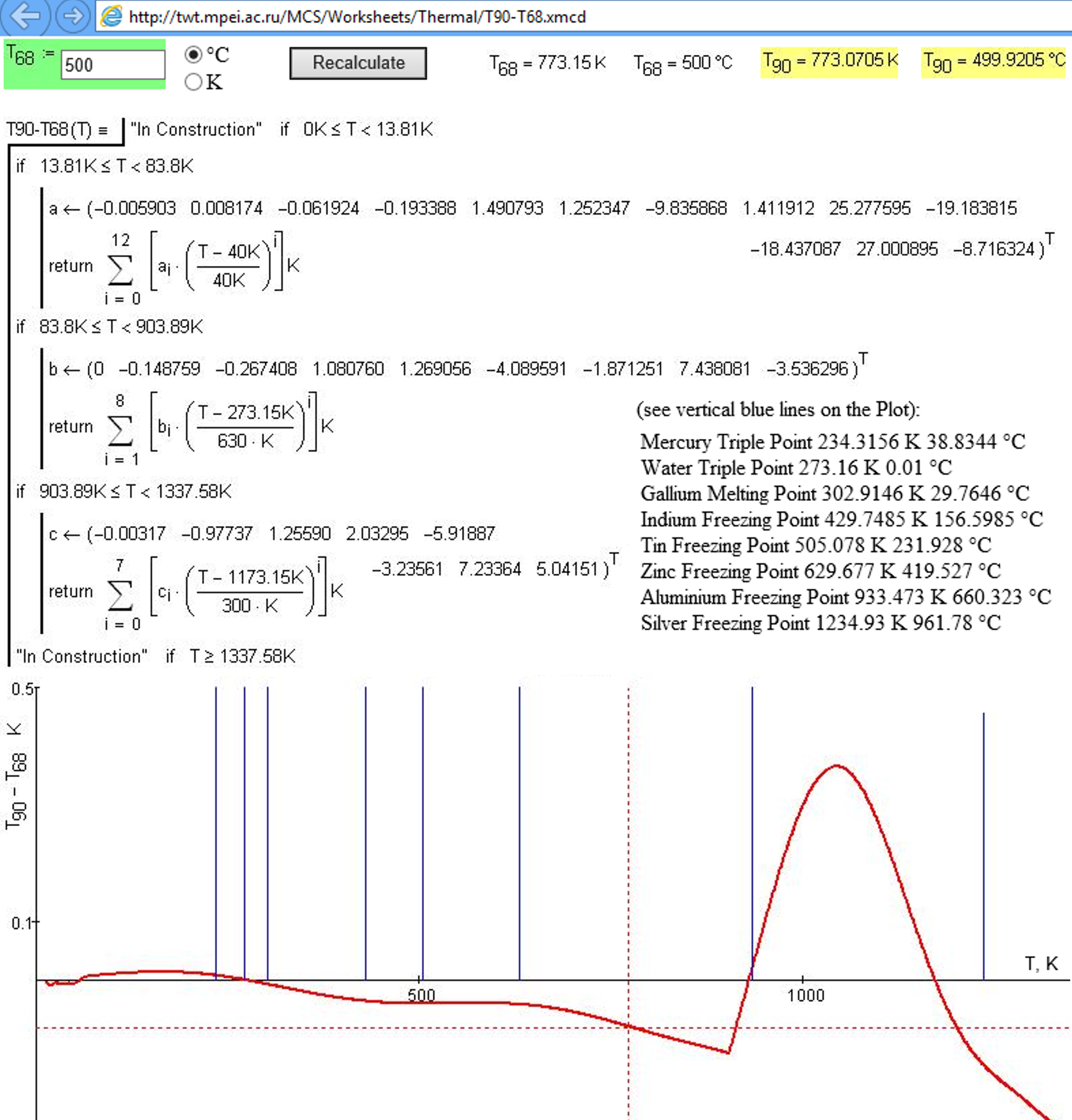
Fig.1.17. Difference between old (ITS-68) and new (ITS-90) temperature scales
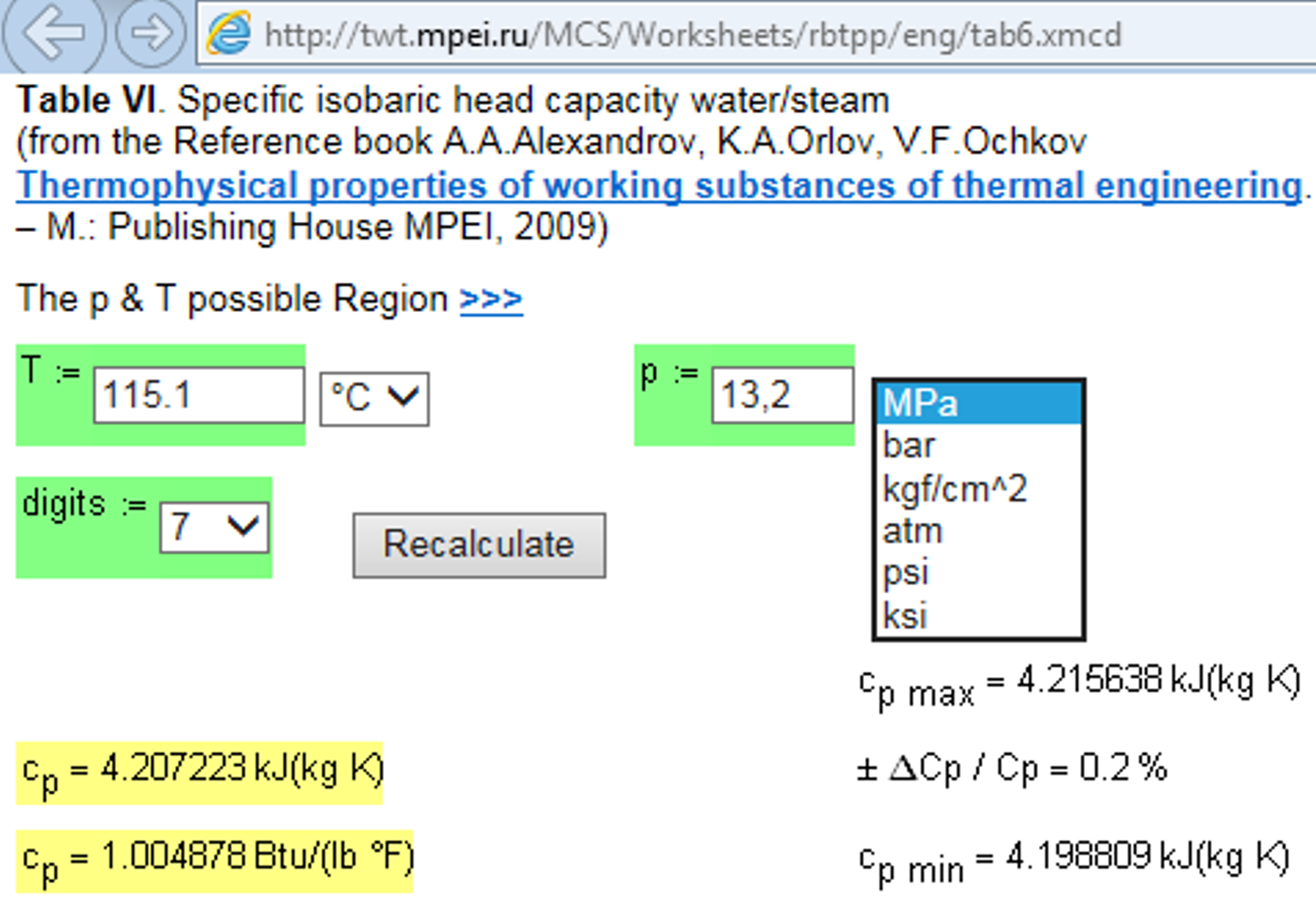
Fig. 1.18. Calculation of the specific isobaric heat capacity of water, indicating the error
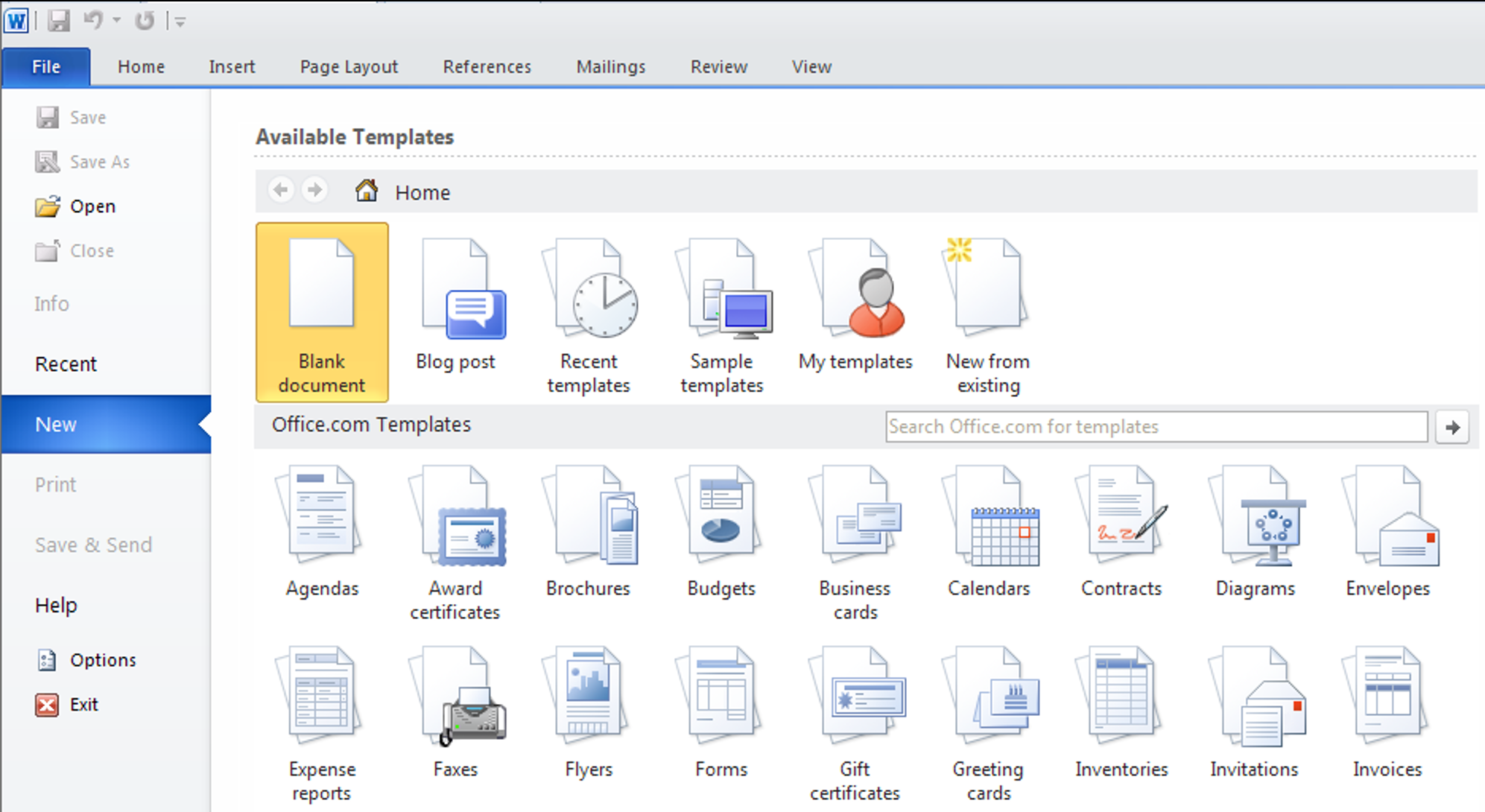
Fig. 1.19. Word templates
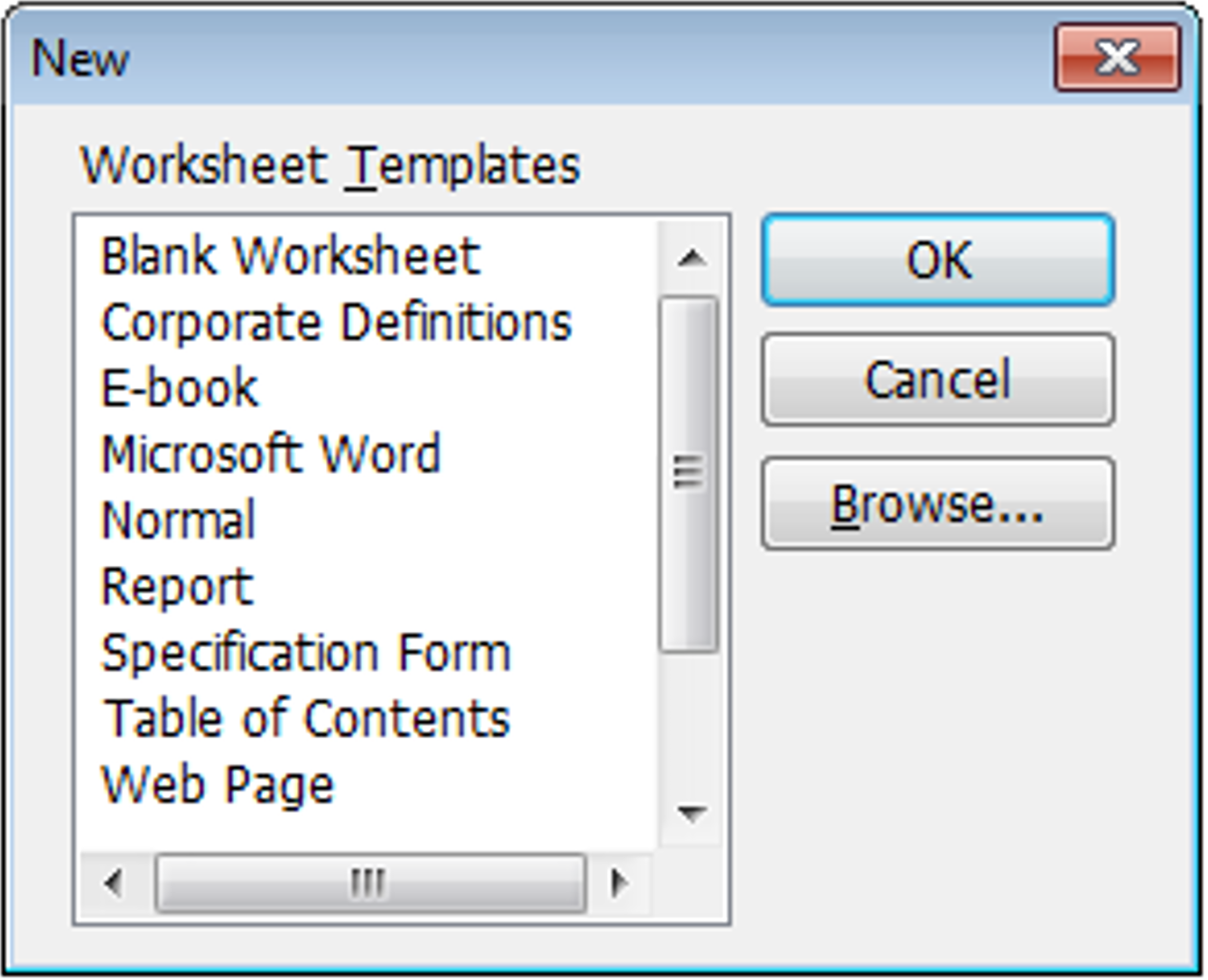
Fig. 1.20. Built-in templates in Mathcad 15
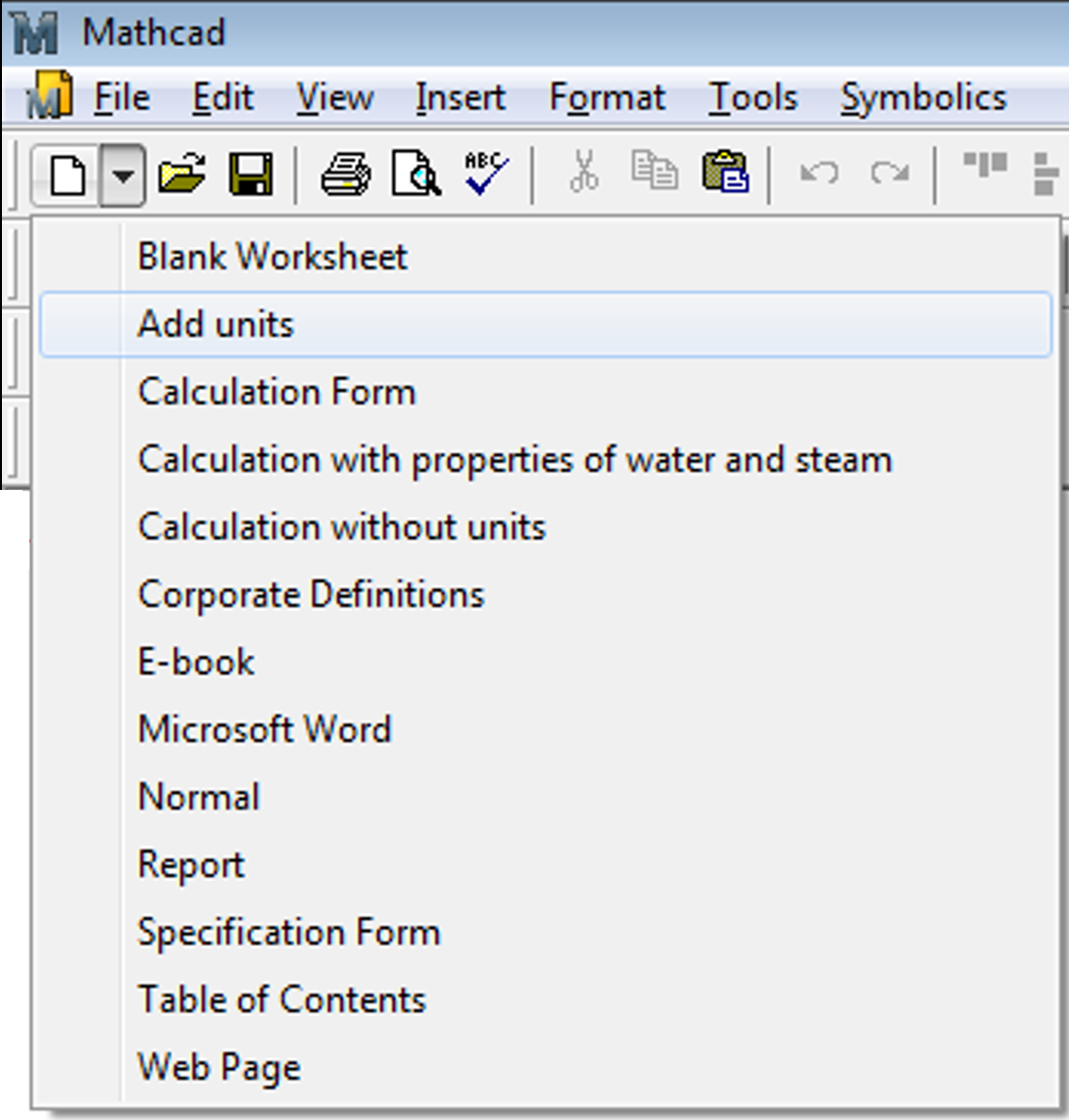
Fig. 1.21. List with custom template

Fig. 1.22. Working with custom template
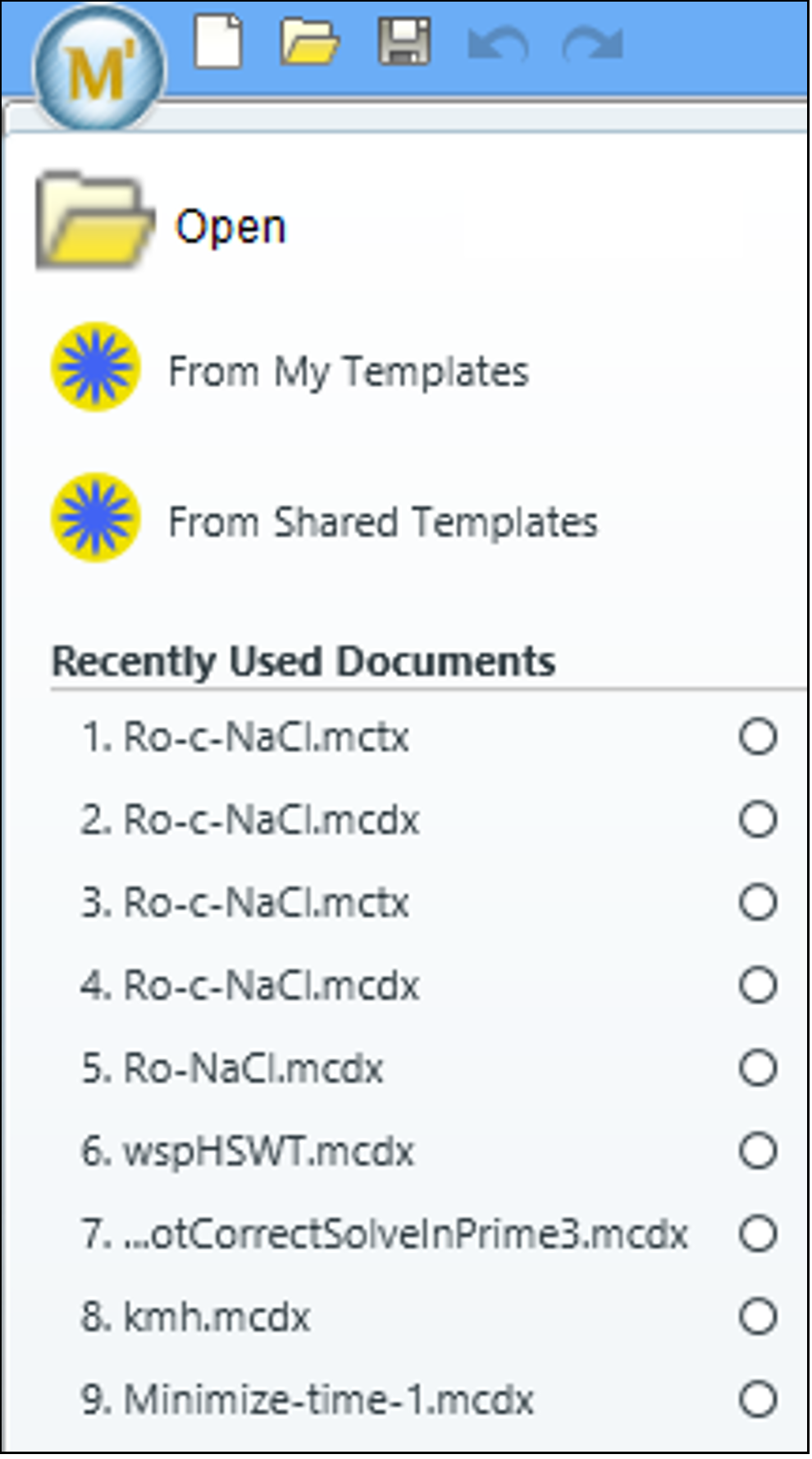
Fig. 1.23. Opening Templates in Mathcad Prime 3.0

Fig. 1.24. Template with the properties of aqueous NaCl solution
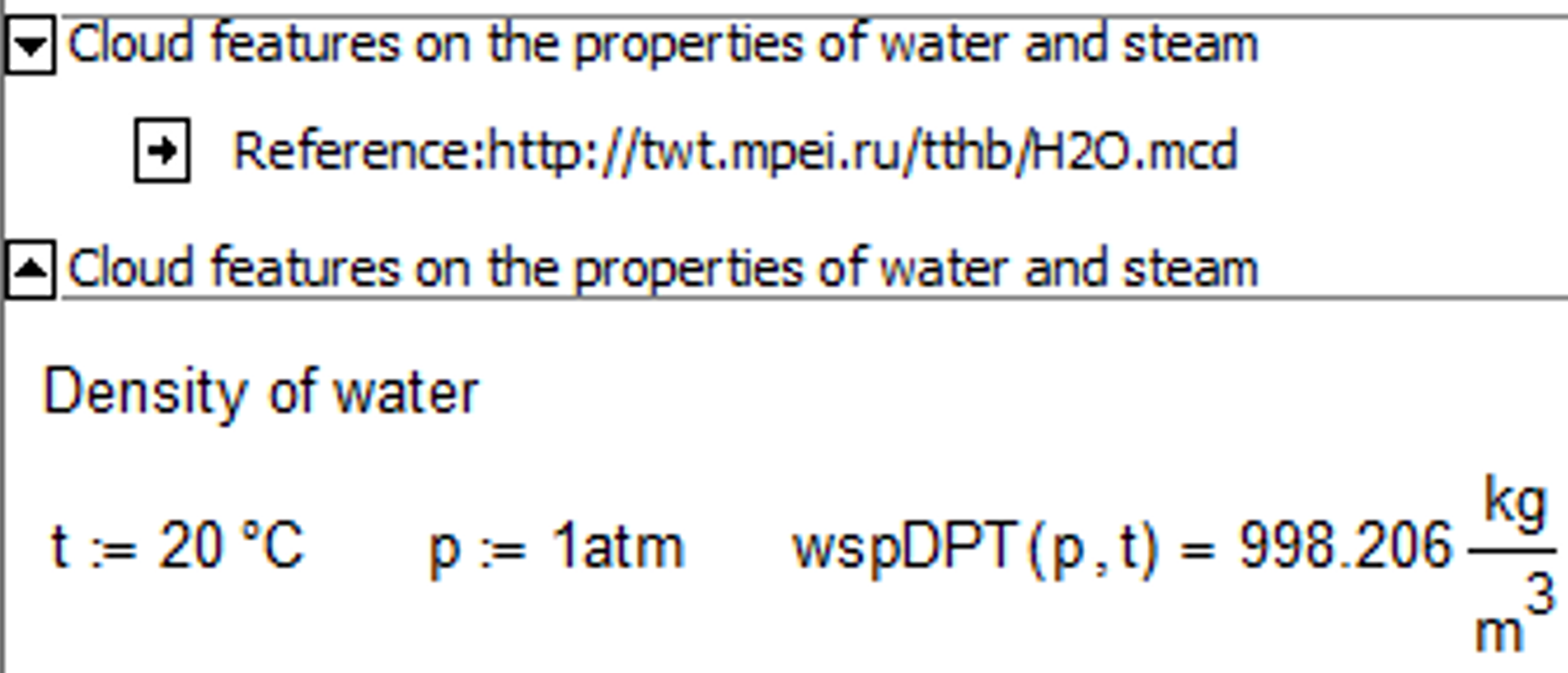
Fig. 1.25. Template with the properties of water and steam
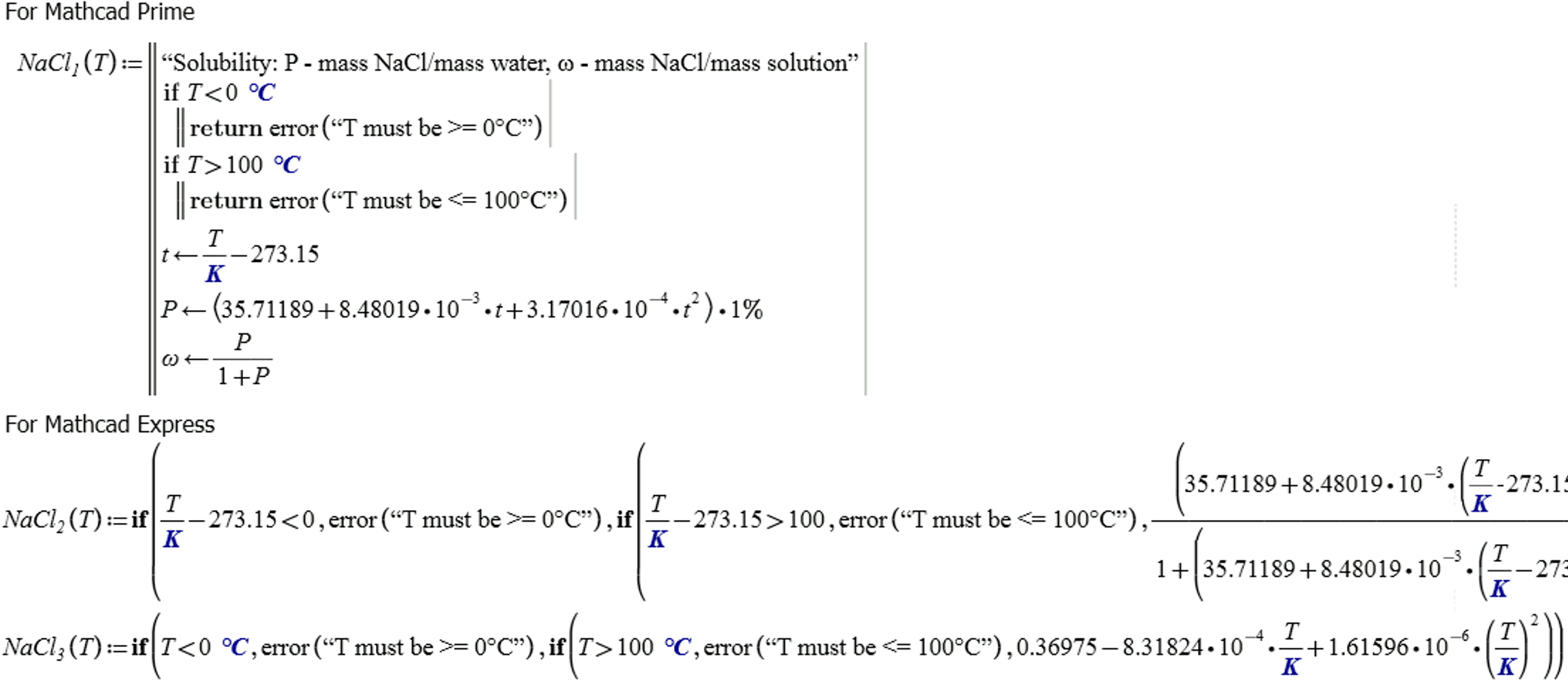
Fig. 1.26. Function solubility NaCl: two options
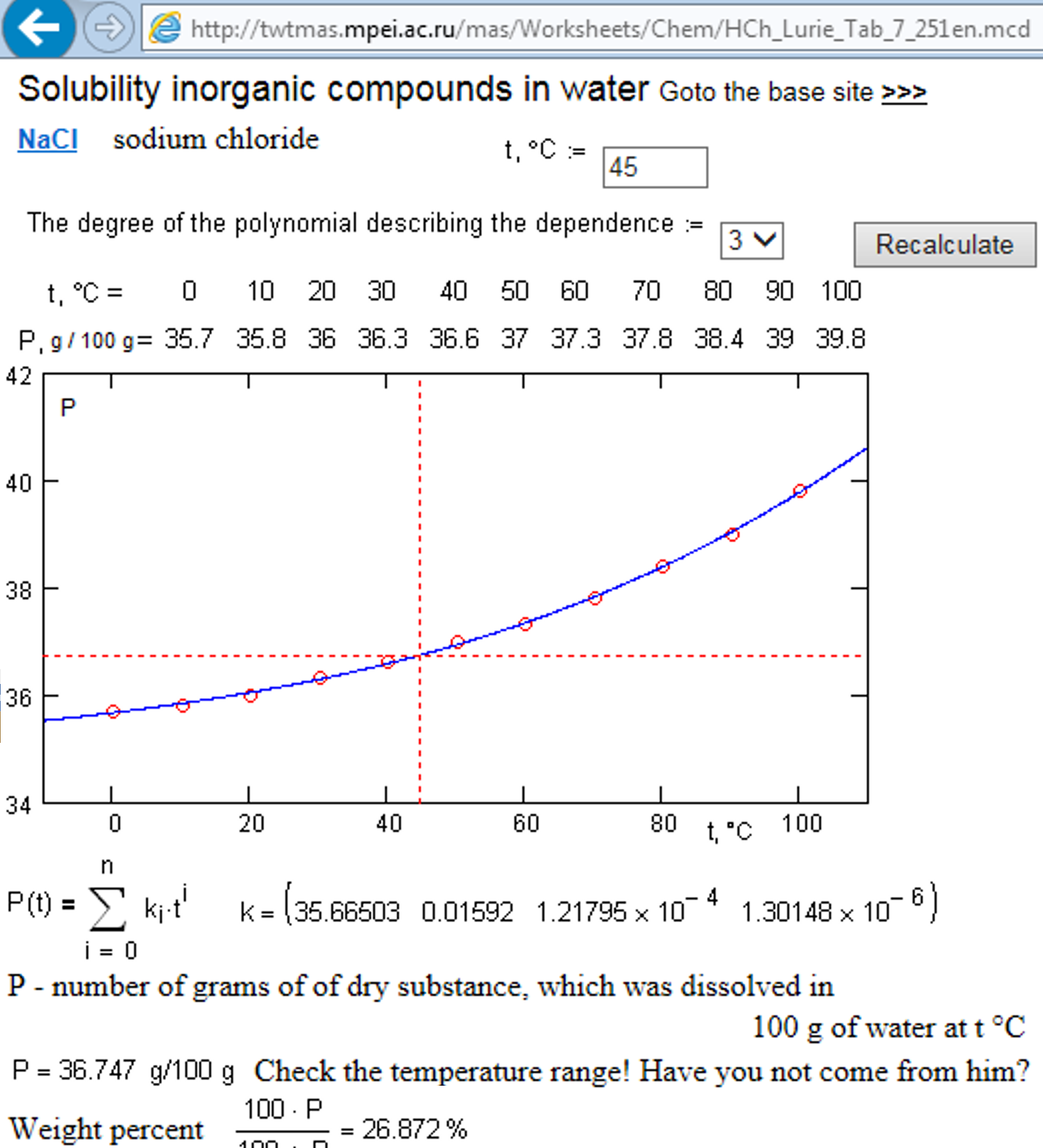
Fig. 1.27. Online calculation of the solubility of NaCl in water
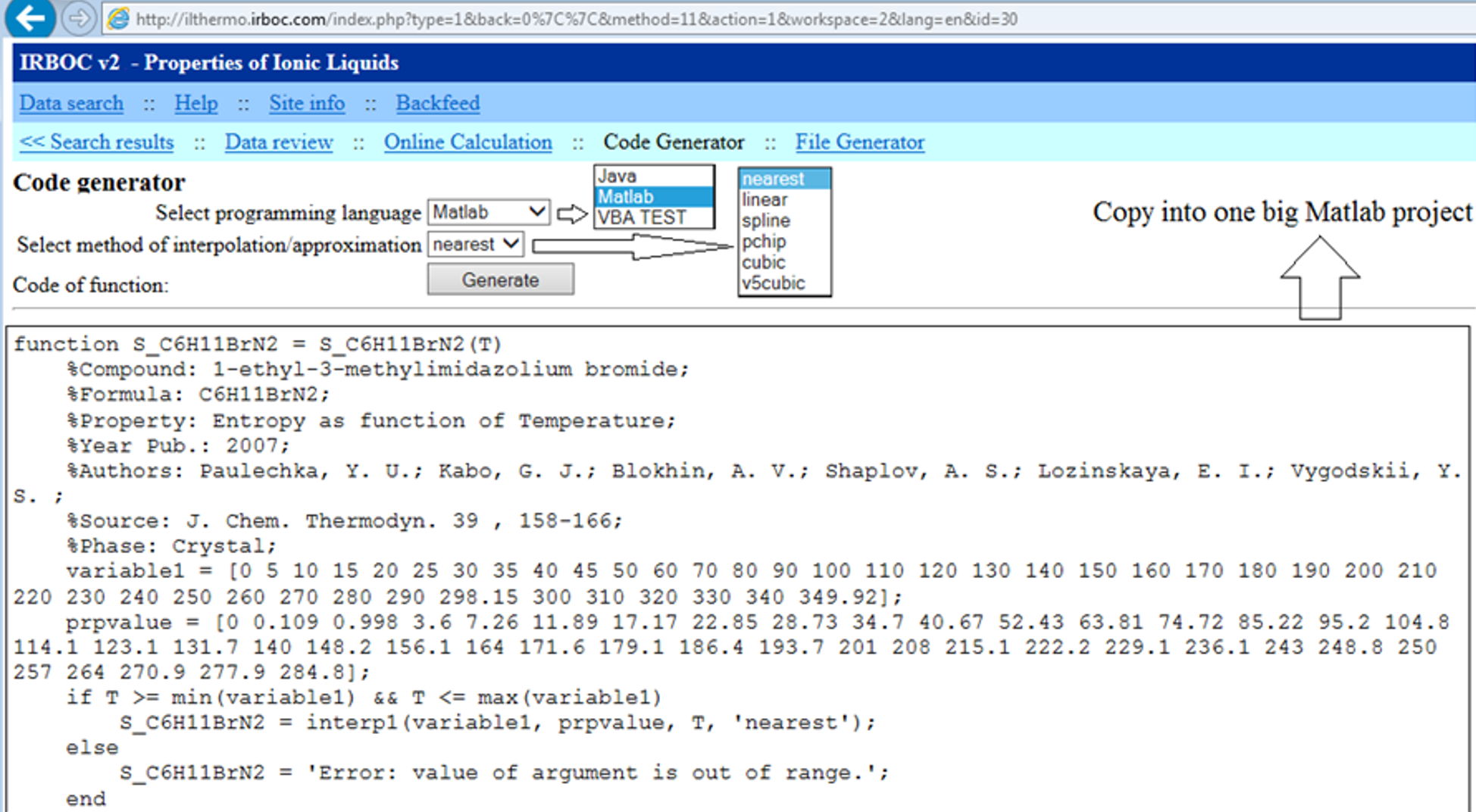
Fig. 1.28. Internet generation user functions on the properties of substances for Matlab
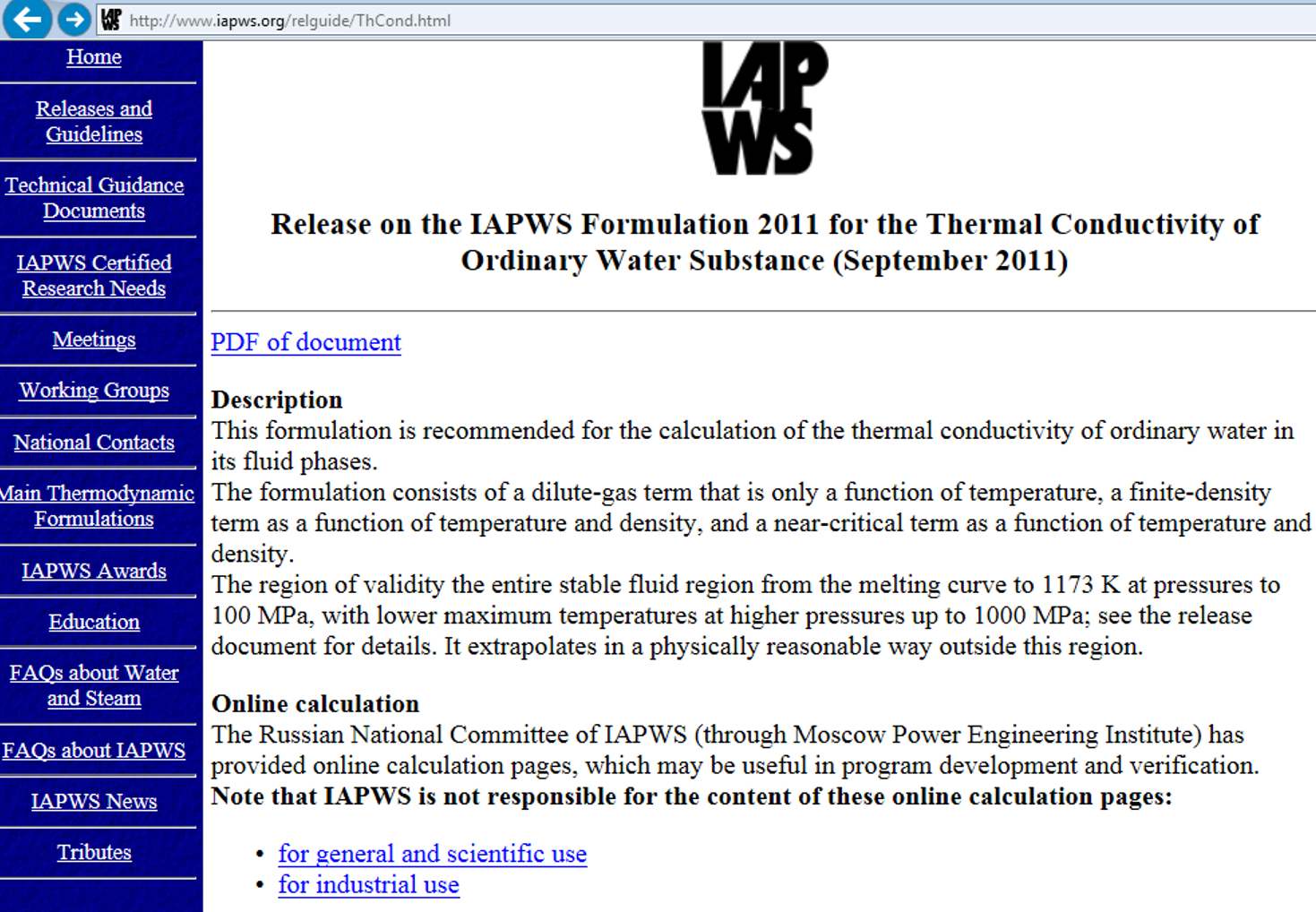
Fig. 1.29. Link to the on line calculation website from the site IAPWS
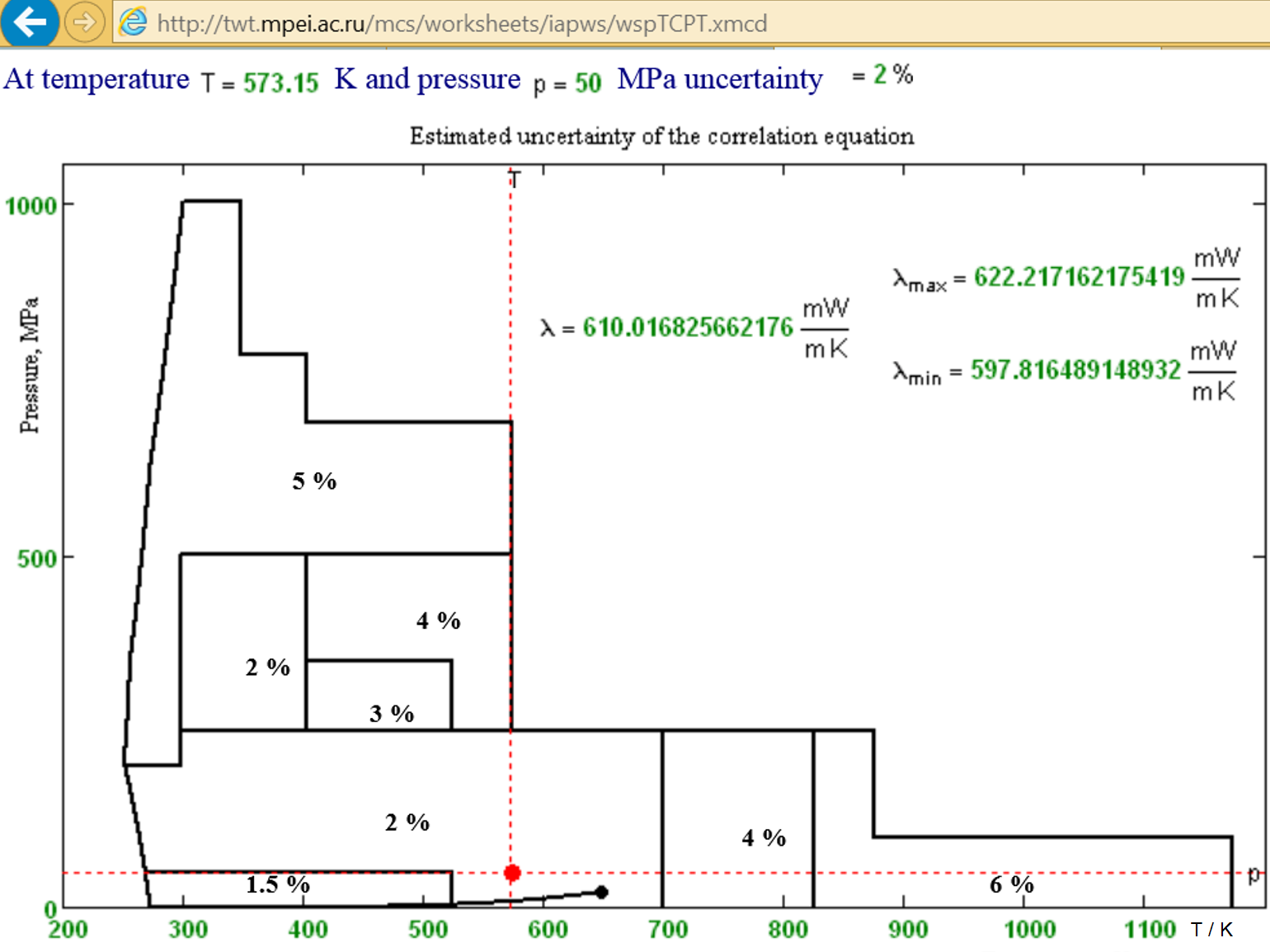
Fig. 1.30. Page of the site with an interactive calculation the thermal conductivity of water and steam
- Mark as New
- Bookmark
- Subscribe
- Mute
- Subscribe to RSS Feed
- Permalink
- Notify Moderator
I have used the template (see Fig.1.13) and have create 3 function with properties of Ethylene Glycol water solution.
See too http://www.mrc-eng.com/Downloads/Brine%20Properties.pdf
- Mark as New
- Bookmark
- Subscribe
- Mute
- Subscribe to RSS Feed
- Permalink
- Notify Moderator
And more... See please the attach

- Mark as New
- Bookmark
- Subscribe
- Mute
- Subscribe to RSS Feed
- Permalink
- Notify Moderator
And more... Can we correct ORIGIN DATA

- Mark as New
- Bookmark
- Subscribe
- Mute
- Subscribe to RSS Feed
- Permalink
- Notify Moderator
ValeryOchkov написал(а):
I have used the template (see Fig.1.13) and have create 3 function with properties of Ethylene Glycol water solution.
See too http://www.mrc-eng.com/Downloads/Brine%20Properties.pdf
One post connected with this chapter of the book


